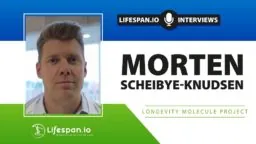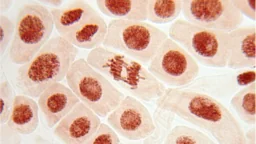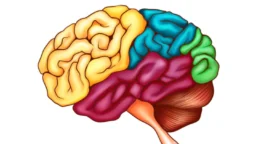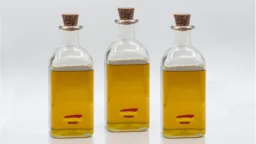Rejuvenation Roundup October 2022
- Genetic discoveries, DAOs, and rapamycin were in our headlines last month.

Ghouls, goblins, and ghosts were all on display last night, but today, we bring you something even scarier: Aging! Let’s see what’s been done to fight back against aging in October.
LEAF News
Team and activities
 Leading the Movement for Longer and Healthier Lives: As a non-profit organization, our goal is to engage and educate the public about the potential of rejuvenation and a world in which age-related diseases are a thing of the past. With that in mind, this is the ideal opportunity to tell you about some of the exciting things that we have done recently.
Leading the Movement for Longer and Healthier Lives: As a non-profit organization, our goal is to engage and educate the public about the potential of rejuvenation and a world in which age-related diseases are a thing of the past. With that in mind, this is the ideal opportunity to tell you about some of the exciting things that we have done recently.
Lifespan News
JellyfishDAO: This episode of Lifespan News focuses on JellyfishDAO, a decentralized autonomous organization that intends to accelerate the development of life extension technologies.
Limitless with Chris Hemsworth: Ryan O’Shea uses this episode of Lifespan News to discuss an upcoming series in which a well-known Marvel actor pushes his limits in real life.
Interviews
 The Longevity Molecule Project with Morten Scheibye-Knudsen: Dr. Morten Schiebye-Knudsen is the founder of the Longevity Molecule Project funded by VitaDAO. However, this is just one side of his research. After starting his career as a physician in Denmark, he studied at the National Institute on Aging before founding the Scheibye-Knudsen Lab.
The Longevity Molecule Project with Morten Scheibye-Knudsen: Dr. Morten Schiebye-Knudsen is the founder of the Longevity Molecule Project funded by VitaDAO. However, this is just one side of his research. After starting his career as a physician in Denmark, he studied at the National Institute on Aging before founding the Scheibye-Knudsen Lab.
Rejuvenation Roundup Podcast
Ryan O’Shea of Future Grind hosts this month’s podcast, showcasing the events and research discussed here.
Journal Club
Short-Term Rapamycin Treatment Extends Lifespan in Flies: Dr. Oliver Medvedik took a look at a recent study published in Nature Aging that has shown that short-term rapamycin treatment in early adulthood extends lifespan in flies and improves gut health in both flies and mice.
Research Roundup
 Coffee Is Associated with Better Cardiovascular Health: Drawing on data from UK Biobank, scientists have once again confirmed the association between coffee and better health outcomes, with ground coffee emerging as the healthiest type.
Coffee Is Associated with Better Cardiovascular Health: Drawing on data from UK Biobank, scientists have once again confirmed the association between coffee and better health outcomes, with ground coffee emerging as the healthiest type.
Removing Senescent Cells Improves the Brains of Female Mice: Researchers publishing in Nature Communications have detailed how the removal of p16-producing senescent cells leads to improvements in the brains of female mice due to the involvement of microglia.
 Combination of Rapamycin and Acarbose Extends Lifespan: In a new study published in Aging Cell, researchers have tested several individual drugs and a combination of rapamycin plus acarbose as potential life extension agents in genetically heterogeneous mice.
Combination of Rapamycin and Acarbose Extends Lifespan: In a new study published in Aging Cell, researchers have tested several individual drugs and a combination of rapamycin plus acarbose as potential life extension agents in genetically heterogeneous mice.
Healthy Lifestyle Associated with Reduced Aging Biomarkers: Researchers publishing in BMC Medicine have found that there is a relationship between biomarkers of aging and measurements of health and mental well-being. This study further shows the link between unhealthy behaviors and adverse health outcomes.
 How Cancers Handle Protein Misfolding: A preprint published in bioRxiv has shown the mechanisms by which cancer handles the protein dysfunction brought about by its own mutational load and how these mechanisms are different from ordinary proteostasis machinery.
How Cancers Handle Protein Misfolding: A preprint published in bioRxiv has shown the mechanisms by which cancer handles the protein dysfunction brought about by its own mutational load and how these mechanisms are different from ordinary proteostasis machinery.
Aging of the Heart Correlates With a Poor Gut Microbiome: In ESC Heart Failure, researchers have commented about the correlation between a poor gut microbiome and aging of the heart. Research increasingly suggests that the quality and composition of the gut microbiome may play a role as important as exercise on health.
 Mitochondria in Different Brain Regions Age Differently: In a study published in Free Radical Biology and Medicine, researchers have identified a link between mitochondrial function and the vulnerability of specific brain regions to age-associated neurodegeneration.
Mitochondria in Different Brain Regions Age Differently: In a study published in Free Radical Biology and Medicine, researchers have identified a link between mitochondrial function and the vulnerability of specific brain regions to age-associated neurodegeneration.
Older Immune Cells Kill Cancer Cells More Quickly: In Aging Cell, researchers have published the surprising and counterintuitive finding that older CD8+ T cells are able to kill cancer cells more quickly than their younger counterparts.
 T Cells Acquire Telomeres from Antigen-Presenting Cells: Scientists have found that when T cells are activated by antigen-presenting cells, the activating cells donate chunks of their telomeres to the T cells, preventing senescence. Telomeres are sequences of TTAGGG repeats at the ends of our chromosomes that protect their integrity.
T Cells Acquire Telomeres from Antigen-Presenting Cells: Scientists have found that when T cells are activated by antigen-presenting cells, the activating cells donate chunks of their telomeres to the T cells, preventing senescence. Telomeres are sequences of TTAGGG repeats at the ends of our chromosomes that protect their integrity.
The Impact of Genetic Risk Factors on Healthspan: A research paper published in Nature Medicine has shown the results of a broad investigation into gene variants associated with healthspan. This was accomplished with a genome-wide association study, an effort to use enormous databases and computational analysis to examine the genetic causes of disease.
 Air Pollution Impairs Lung Function: In a new study published in Ecotoxicology and Environmental Safety, the researchers have shown that air pollution leads to lung function decline accompanied by lung and intestinal microbiome imbalances.
Air Pollution Impairs Lung Function: In a new study published in Ecotoxicology and Environmental Safety, the researchers have shown that air pollution leads to lung function decline accompanied by lung and intestinal microbiome imbalances.
Senescent Cells Can Be Good or Bad According to New Study: New research has scientists reconsidering the role of ‘zombie’ cells that drive some aspects of aging and whether they should be eliminated using senolytic drugs. It turns out that not all senescent cells are necessarily bad and that some may be helpful.
 A Doubled Gene Explains the Bowhead Whale’s Lifespan: A preprint published in bioRxiv has partially explained the lifespan of the bowhead whale through its duplication of CDKN2C, which regulates how cells divide.
A Doubled Gene Explains the Bowhead Whale’s Lifespan: A preprint published in bioRxiv has partially explained the lifespan of the bowhead whale through its duplication of CDKN2C, which regulates how cells divide.
HIIT and Intermittent Fasting Show Cumulative Effect: Scientists have shown that both high-intensity interval training (HIIT) and time-restricted eating improve metabolism in healthy overweight women, with their combination providing the biggest effect.
 Intermittent Exercise Encourages Muscle Protein Uptake: A research paper published in the Journal of Applied Physiology has found that regular, intermittent exercise encourages amino acids to form proteins in muscle. Previous research has found that a lack of activity accelerates the age-related muscle loss known as sarcopenia.
Intermittent Exercise Encourages Muscle Protein Uptake: A research paper published in the Journal of Applied Physiology has found that regular, intermittent exercise encourages amino acids to form proteins in muscle. Previous research has found that a lack of activity accelerates the age-related muscle loss known as sarcopenia.
Pain Is Associated with Increased Risk of Falls in Adults: In a new longitudinal study published in European Geriatric Medicine, the researchers have shown that people experiencing moderate to severe pain in multiple sites have an increased risk of falls, particularly in middle age.
 Olive Oil Linked to Significantly Lower Mortality: In a new study published in the journal Nutritional Epidemiology, scientists have found a strong association between olive oil consumption and lower risk of cardiovascular, cancer, and all-cause mortality.
Olive Oil Linked to Significantly Lower Mortality: In a new study published in the journal Nutritional Epidemiology, scientists have found a strong association between olive oil consumption and lower risk of cardiovascular, cancer, and all-cause mortality.
New Compounds Beat Resveratrol in Sirtuin Activation: A recent study published in Molecules has tested multiple thiazole-based derivatives that appear to activate the sirtuin SIRT1 more than resveratrol. Resveratrol, commonly found in grape skins and red wine, generated some of the initial interest in sirtuin activators after initial studies showing many therapeutic benefits, such as cancer prevention.
Vitamin D Combats Oxidative Stress in Gingival Cells: A cellular study published in the Journal of Dental Sciences has shown that Vitamin D alleviates inflammaging related to the oxidative stress brought on by advanced glycation end-products (AGEs). Previous research has shown that the uncontrolled blood sugars associated with Type 2 diabetes attach themselves to other proteins and fats.
Combining stem cell rejuvenation and senescence targeting to synergistically extend lifespan: We had previously published the preprint of this now peer-reviewed article, which shows a synergistic effect between senolytics and stem cell rejuvenation.
Small extracellular vesicles from young adipose-derived stem cells prevent frailty, improve health span, and decrease epigenetic age in old mice: Epigenetic age was lower in the tissues of old mice treated with these vesicles, and their metabolome was changed to a more youthful one.
A single short reprogramming early in life initiates and propagates an epigenetically related mechanism improving fitness and promoting an increased healthy lifespan: In old age, treated mice have improved tissue structures in kidney, spleen, skin, and lung, with an increased lifespan of 15%.
Centenarians consistently present a younger epigenetic age than their chronological age with four epigenetic clocks based on a small number of CpG sites: Epigenetic aging and potentially biological aging are slowed in exceptionally long-lived individuals, and epigenetic clocks based on a small number of CpGs are sufficient to reveal alterations of the global epigenetic clock.
Fetal muscle extract improves muscle function and performance in aged mice: Further analysis of the active ingredients of the extract will shed light on the development of a novel treatment for sarcopenia.
Tissue-specific impacts of aging and genetics on gene expression patterns in humans: In this study, the researchers quantify the relative contributions of genetics and aging to gene expression patterns across 27 tissues from 948 humans.
Repurposing SGLT-2 Inhibitors to Target Aging: Available Evidence and Molecular Mechanisms: The researchers hold that the burden of evidence might prompt the design of studies testing the potential employment of this class as anti-aging drugs.
Impacts of Astaxanthin Supplementation on Walking Capacity by Reducing Oxidative Stress in Nursing Home Residents: The effect was most likely accompanied by an increase in endurance instead of an increase in muscle strength.
Effects of Lactiplantibacillus plantarum OLL2712 on Memory Function in Older Adults with Declining Memory: A Randomized Placebo-Controlled Trial: This study suggests that OLL2712 ingestion has protective effects against memory function decline in older adults.
Vitamin D Deficiency Increases Mortality Risk in the UK Biobank: The researchers of this study hold that it supports a causal relationship between vitamin D deficiency and mortality.
Real-world evidence for the effectiveness of vitamin D supplementation in reduction of total and cause-specific mortality: This large study suggests that in the real world, the efficacy of vitamin D supplements in reducing mortality may be at least as good as observed in randomized clinical trials.
Blood pressure lowering and prevention of dementia: an individual patient data meta-analysis: There is evidence to support the benefits of antihypertensive treatment in late-mid and later life for lowering the risk of dementia.
Today’s Older Adults Are Cognitively Fitter Than Older Adults Were 20 Years Ago, but When and How They Decline Is No Different Than in the Past: Age trajectories were parallel, and there was no evidence of cohort differences in the amount or rate of decline and the onset of decline.
Broccoli Sprouts Promote Sex-Dependent Cardiometabolic Health and Longevity in Long-Evans Rats: Females had a lower body weight and visceral adiposity, while males exhibited improved glucose tolerance and reduced blood pressure when compared to their control counterparts.
Intestine-specific removal of DAF-2 nearly doubles lifespan in Caenorhabditis elegans with little fitness cost: Evidence from this and other studies suggests that altered metabolism, particularly down-regulation of protein and RNA synthesis, mediates longevity by reduction of insulin/IGF-1 signaling.
News Nuggets
 Turn.bio Announces Preliminary Results of a CAR-T Cell Study: Turn.bio has announced that its proprietary cellular reprogramming technology was able to significantly increase the proliferative and cytotoxic potential of premanufactured CAR-T cells in vitro.
Turn.bio Announces Preliminary Results of a CAR-T Cell Study: Turn.bio has announced that its proprietary cellular reprogramming technology was able to significantly increase the proliferative and cytotoxic potential of premanufactured CAR-T cells in vitro.
 Kizoo Invests in Rejuvenation Startup MoglingBio: Having received new funding from Kizoo Technology Capital in its first seed round, MoglingBio intends to further its research into the rejuvenation of aging stem cells, finding ways to stave off stem cell exhaustion.
Kizoo Invests in Rejuvenation Startup MoglingBio: Having received new funding from Kizoo Technology Capital in its first seed round, MoglingBio intends to further its research into the rejuvenation of aging stem cells, finding ways to stave off stem cell exhaustion.








